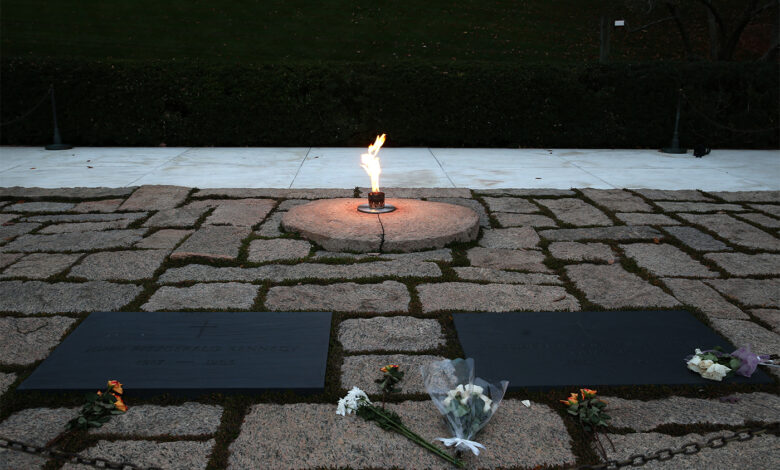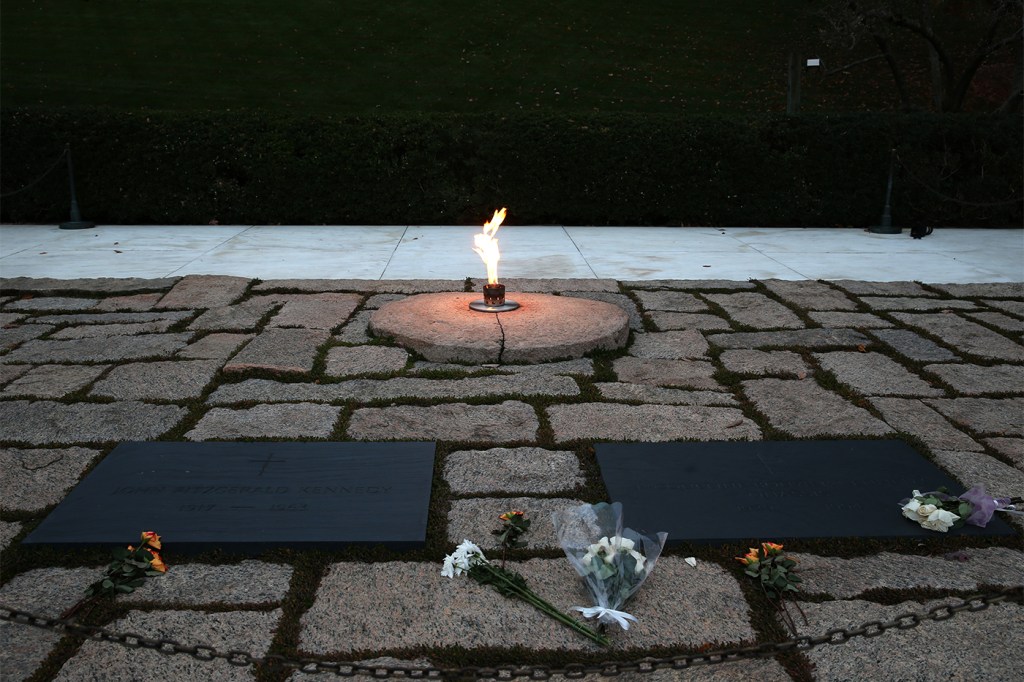Why Fantasy is Important in the Age of Artificial Intelligence

Northeastern business professor Art Langer argues that societies who forget the importance of the humanities risk becoming “warlike”.

LONDON — John F. Kennedy’s name is inscribed into ledger stone placed among the granite fieldstones at his gravesite at Arlington National Cemetery in Virginia.
Only a few feet away from his final resting place is what is known as the eternal flame — the candle in the wind.
That image is central to Northeastern University professor Art Langer’s argument about how fantasy and storytelling are integral to understanding the world, and that societies that forget its importance risk becoming “warlike.”
“The Candle In the Wind” is the fourth book in T. H. White’s novel “The Once and Future King,” a series of stories about the mythical legend of King Arthur and his knights of the round table.
The title refers to Arthur’s pursuit of peace — represented by the candle — being buffeted by rival forces.
“Camelot,” a popular musical based on White’s book, came out in the same year as Kennedy’s election as U.S. president in 1960 and the LP recording of the original Broadway cast’s performance was said to have become one of the Democratic politician’s favorites to put on the White House turntable.
The popularity of the musical and the politician forged the two together in the minds of the public, with Kennedy’s presidency becoming nicknamed the “Camelot era” — a comparison that was emphasized in an interview with the president’s wife, Jacqueline Kennedy, after his assassination in 1963.
Langer uses the example of that interlinking of fable and reality with Camelot and Kennedy as part of his argument that there are perils if societies ignore the humanities.
An associate vice provost and professor of practice in Northeastern’s D’Amore-McKim School of Business, Langer advanced his theory during a lecture at “The Future of Humanities: Reflective Practices In the Age of AI conference,” held on the university’s London campus.
It built on an argument he first put into writing in his paper, “Fantasy and Adult Development,” published in the Journal of Aesthetic Education.
The use of imagination and stories can provide the critical thinking skills necessary to rebuff misinformation and can also serve as a driver of economic growth, he argues in the paper.
Langer says teaching humanities fosters critical thinking in society.
“If you become too pragmatic about the output of education, making it about what industry needs or for the useful purposes of science and technology, you lose the idea of humanities and abstract thinking and creativity, you become a warlike society — that can happen easily,” he said.
In his paper and in the Q&A session after his London lecture, Langer honed in on the way Kennedy’s presidency has been tied to the British tale of the noble and good ruler, King Arthur.
Langer told the conference that JFK and his wife saw the “Camelot” musical on Broadway and “really fell in love with it.”
Jacqueline Kennedy, in an interview with Life magazine two weeks after her husband’s death, quoted lines from the finale of the show, before saying: “There’ll be great presidents again … but there’ll never be another Camelot.”
The eternal candle was also part of Jackie’s idea of linking JFK’s presidency with the Camelot legend, Langer said.
He told the Future of Humanities conference: “You may know that the Kennedy presidency is known as Camelot. And what was the message of Camelot? The sacrifice that King Arthur made, the candle in the wind. Arthur thought he had failed but yet he had started an idea.
“When Kennedy was shot and killed and they buried him in Arlington, Jacqueline Kennedy demanded that there be a candle, the ever-burning light, at his grave.”
There were reports of some resistance to having a so-called eternal flame at JFK’s gravesite, but the former first lady was insistent, Langer said.
“She said, ‘Listen to me, this is Camelot. He (Kennedy) created an idea and he gave his life for it’. And today there is the ever-going fire at Kennedy’s grave,” Langer said.
“So do you see how this creates these movements of sacrifice for the greater good based on a metaphor of ‘The Once and Future King’? I found that extraordinary, how much she linked into that story that she saw in a musical.”
Langer highlighted how White himself positioned “The Once and Future King” novel as an allegory, as a way of warning about the dangers of fascism, with the book having been written during World War II, but not published until 1958.
The New Yorker said fantasy cannot only be used to foster political movements and messages but can also help to grow the economy.
He concluded his paper by saying that “innovative organizations can use fantasy to stimulate creativity of their teams to drive economic performance, and entrepreneurs can use it to influence how they develop future innovations.”
Learning about legends and folktales can also help to guard against falsehoods, teaching people about the need to consider whether things are real or fakes, he says.
Those aspects of critical thinking are going to become even more important as technologies, such as artificial intelligence, develop, Langer said.
“Because fantasy provides the impetus to think beyond what is socially accepted and awakens the reflection of new possibilities, the argument is that it can accelerate movement toward a more abstract thinking,” he said.
“That is especially true in a world dominated by voluminous information that can be manipulated using AI, or used to create new ideas and imaginations,” Langer said. “And of course, the concern is you are going to see all kinds of actors creating data that is not real — we are facing that now.
“I saw an artist that created an animal that doesn’t even exist, but it looks real. All of these things are going to challenge individuals to have better critical thinking skills.”




